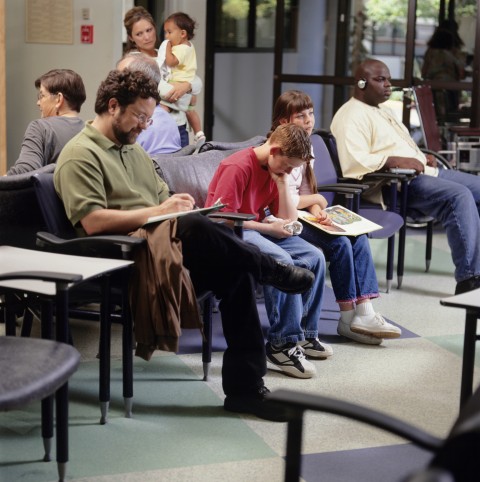A health care bill that takes away people’s health care
Caring for the sick means keeping them in our risk pool.

Days before the House of Representatives passed the American Health Care Act, CNN’s Jake Tapper interviewed Representative Mo Brooks. The AHCA bill “will allow insurance companies to require people who have higher health care costs to contribute more to the insurance pool,” said the Alabama Republican, “reducing the cost to those people who lead good lives, they’re healthy, they’ve done the things to keep their bodies healthy.”
It’s a statement that raises a list of problems. The most obvious is that a healthy lifestyle very often does not result in good health. Some catastrophic illnesses and injuries are preventable; many are not. The rain falls on the prudent and the reckless alike.
What’s more, Brooks’s moralizing—his summary of healthy choices as “leading a good life”—is a shaky foundation for public policy. Which choices are good enough, and how consistently must you make them? How often can you skip your workout or cheat on your diet before you no longer deserve the decent insurance enjoyed by the healthy?





